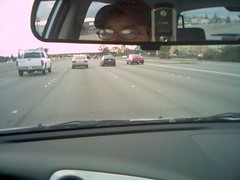Microsoft Windows has long supported shortcuts - a next to useless version of symbolic links since they are only recognized by the shell. Windows 2000 (aka NT 5.0) added
reparse points as a way of truly supporting symbolic links. The reparse point allows a path to be evaluated at each '/' so that you could change the current directory. For reasons I never understood (but can certainly guess about), this was never turned on in the UI although you can make them programatically though an API call. From Raymond Chen's blog is an article on the dangers of not taking reparse points into account when traversing directories. From the comments, I discovered the
Junction command link tool which allows you to make symlinks (similar to the ln command in unix). As usual, it is from
Sysinternals - if you do windows development this site is a life saver.




